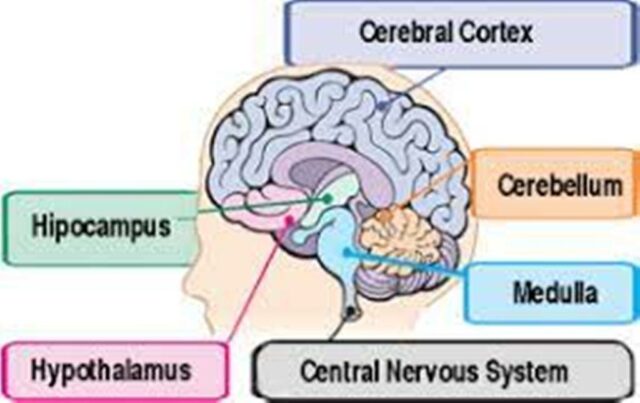The relationship between heavy drinking and the brain is clear: People who drink heavily have alterations in brain structure and size that are associated with cognitive impairments.
A new study says that alcohol consumption even at levels most would consider modest may also carry risks to the brain. An analysis of data from more than 36,000 adults, found that light-to-moderate alcohol consumption was associated with reductions in overall brain volume.

Strong links
This links grow stronger the greater the level of alcohol consumption. As an example, in 50-year-olds, as average drinking among individuals increases from one alcohol unit (about half a beer) a day to two units (a pint of beer or a glass of wine) there are associated changes in the brain equivalent to age two years. Going from two to three alcohol units at the same age was like age three and a half years.
The fact that we have such a large sample size allows us to find subtle patterns, even between drinking the equivalent of half a beer and one beer a day. These findings contrast with scientific and governmental guidelines on safe drinking limits, for example, although the National Institute on Alcohol Abuse and Alcoholism recommends that women consume an average of no more than one drink per day, recommended limits for men are twice that, an amount that exceeds the consumption level associated in the study with decreased brain volume.
While strong evidence exists that heavy drinking causes changes in brain structure, including strong reductions in gray and white matter across the brain, other studies have suggested that moderate levels of alcohol consumption may not have an impact, or even that light drinking could benefit the brain in older adults.
Confounding variables
To gain an understanding of possible connections between drinking and the brain, it was critical to control for confounding variables that could cloud the relationship. The team controlled for age, height, handedness, sex, smoking status, socioeconomic status, genetic ancestry, and county of residence. They also corrected the brain-volume data for overall head size.
Going from zero to one alcohol unit didn’t make much of a difference in brain volume, but going from one to two or two to three units a day was associated with reductions in both gray and white matter. The results say that the outcome is not linear rather it gets worse the more people drink.
Even removing the heavy drinkers from the analyses, the associations remained. The lower brain volume was not localized to any one brain region, the scientists found.To give a sense of the impact, the researchers compared the reductions in brain size linked with drinking to those that occur with aging.
Based on their modeling, each additional alcohol unit consumed per day was reflected in a greater aging effect in the brain. While going from zero to a daily average of one alcohol unit was associated with the equivalent of half a year of aging, the difference between zero and four drinks was more than 10 years of aging.
The link grew stronger the greater the level of alcohol consumption, also likely to be able to more definitively pin down causation rather than correlation, which may be possible with new longitudinal biomedical datasets that are following young people as they age.And while the researchers underscore that their study looked only at correlations, they say the findings may prompt drinkers to reconsider how much they imbibe.
Exponential
There is some evidence that the effect of drinking on the brain is exponential, so one additional drink in a day could have more of an impact than any of the previous drinks that day. That means that cutting back on that final drink of the night might have a big effect in terms of brain aging, in other words, those people who can benefit the most from drinking less are the people who are already drinking the most.

